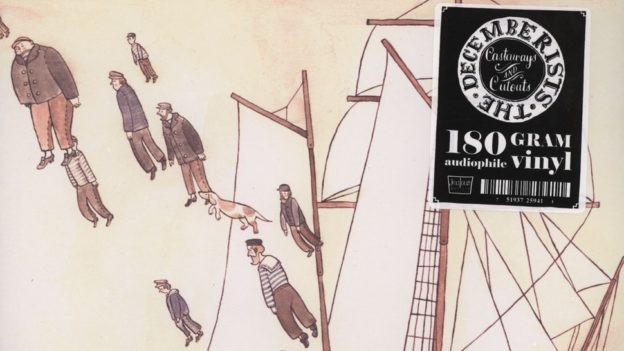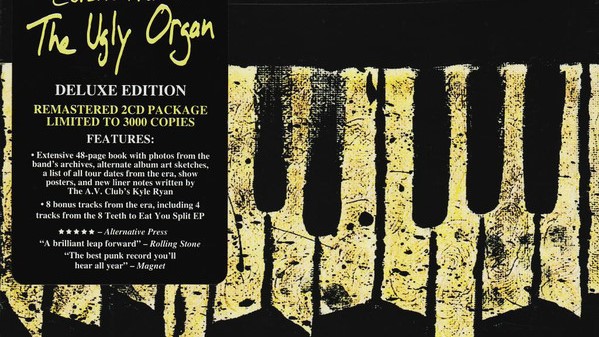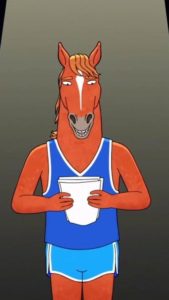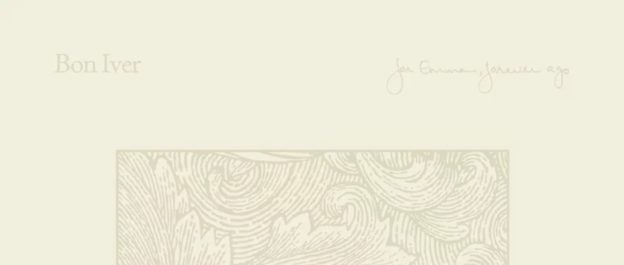The Decemberists – Castaways And Cutouts (2011, 180 g, Vinyl)
I think it was Thanksgiving 2006. We were living in Blacksburg. I was working at Barnes & Noble down in Christiansburg and everyone came to our place for Thanksgiving. Adam brought Picaresque and we were hooked.
Castaways and Cutouts ebbed and flowed for a while. There were times when it was my favorite Decemberists album, especially when we were in London. Then we saw them perform Hazards of Love live and I was set on that.
Castaways is in the period when Colin’s ambition outstripped the band’s skills. I love that. I like when things fray around the edges just a little and you can tell the author or singer is working toward something.
There’s an interview with Jimmy Chamberlin where he discusses joining the Smashing Pumpkins. By his recollection, he saw them play a show in some bar and there’s Billy Corgan up on stage with James and D’arcy and they’re all plugging away with a drum machine.
Jimmy said, “They were atrocious. But the thing I noticed was that not only were the song structures good, but Billy’s voice had a lot of drive to it, like he was dying to succeed.”
The feeling that comes along with that kind of determination is what made a lot of Castaways and Picaresque work. Colin is telling these beautiful stories and pulling out all of his favorite five-dollar words. It stretches the fabric of the songs in very pleasant ways, but sometimes things just rip.
Odalisque walks through a whole litany of terrors. The song starts out with a woman killing herself, set to a sleepy Colin-driven tune. The meldoy fills in and then we dive into rape, antisemitism and general violence.
Musically, it’s all over the place, which is pretty typical in a Decemberists’ song. It’s done better in other places though. The move they make on Hazards between characters is often sudden and incongruous, but it’s incredibly well-executed.
Odalisque brings together all of these pieces (violence, musical ambition, haunting imagery, etc.) that they band will make work a few albums later. On Castaways, it’s good and it’s compelling, but it’s rough around the edges.
I really like it, but part of the reason I like it is for the rough edges. Maybe that makes no sense. Maybe I just like it because it reminds me of that Thanksgiving and having all those people together.
I bought the album on a bit of a whim. I went to Barnes & Noble to check out a sale they were having on vinyl. There were a few records I was really hoping to grab – Cursive, NIN, Radiohead and some others. They had the Cursive LP, which is magnificent. Nothing else I was looking for was in-store. I grabbed this and the Rushmore OST as impulse purchases.
It’s never going to be my favorite, but it’s also an album I’ll always listen to.




